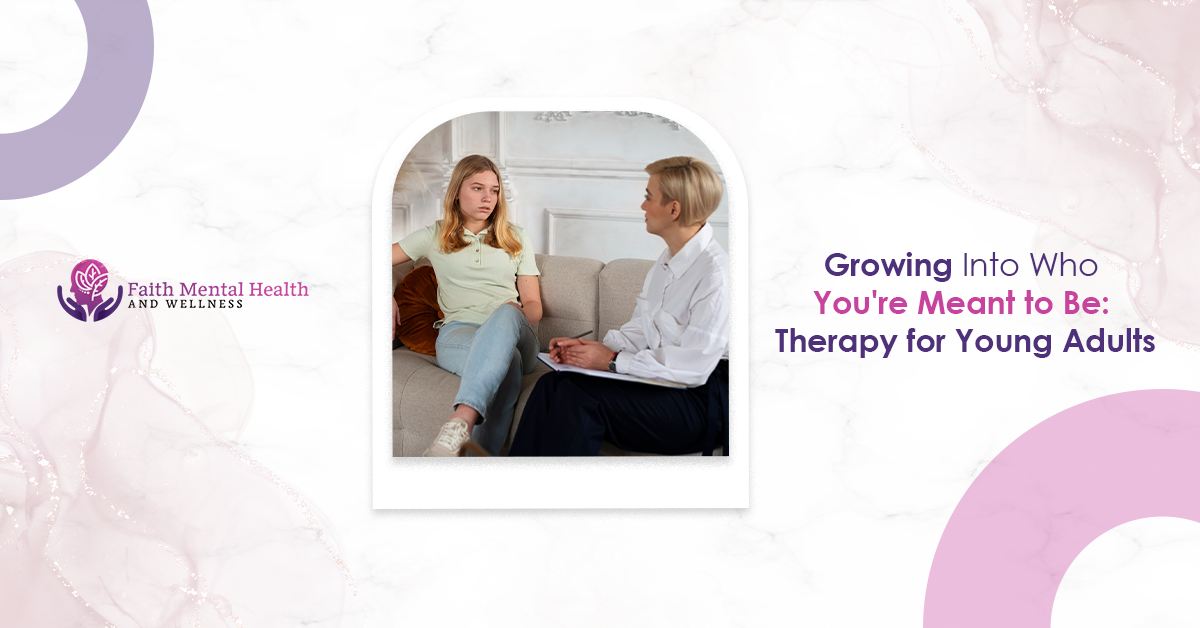Being in your twenties these days feels a bit out of sync and disorienting.
The traditional markers of adulthood—steady jobs, long-term relationships, clear life plans—feel more fluid than they used to.
You may think that everyone else understands things better than you do.
What you are going through is called emerging adulthood.
It’s the extended period between adolescence and complete independence that’s become increasingly common nowadays.
Although there are lots of chances for growth, this phase can be isolating when faced with these challenges on your own.
The Reality of Growing Up Today
From the results of SAMHSA’s 2023 survey, we can see crucial mental health trends among young adults.
The set of pressures you encounter in your twenties is not the same as what those who came before you experienced.
- Identity exploration that extends well beyond college—finding who you are as you move past your college years and studies
- Career uncertainty in a rapidly changing job market—where the “right” path feels increasingly unclear
- Relationship complexity—using dating apps, commitment timelines, and finding “your person” in an age of infinite options
- Financial pressures—the stresses of having to repay student loans, pay for expensive housing, and plan every financial step
- Social media comparison—observing the achievements of others on social media as you try to define your path
Why Psychotherapy Can Be Especially Useful for Young Adults
Psychotherapy for young adults can be beneficial for young people as they go through important life changes.
It aids people in discovering themselves, staying strong during hard times, and growing stronger.
Besides fixing problems, this means working on growing and becoming who you are meant to be.
Imagine therapy as a meaningful conversation with a person who really gets it and is also trained to help people solve the same problems.
The therapy given to young adults using the modern approach is practical, centered on the present, and arranged according to what you are going through now.
What Therapy Can Help With:
- Identity work—getting clear on your values, goals, and what actually matters to you (not what you think should matter)
- Relationship patterns—understanding why you keep ending up in the same situations with friends, family, or romantic partners
- Anxiety and overwhelm—learning actual tools to manage the mental load of adult life
- Life transitions—whether it’s career changes, moves, breakups, or other major shifts
- Building emotional intelligence—developing the skills to understand and communicate your needs effectively
The Science Behind Why It Works
Research consistently shows that emerging adulthood is actually a critical window for intervention and growth.
A growing body of research has identified that attachment and social support are major factors that help protect emerging adults.
When regular systems of support are not close by, therapy offers a safe space and helpful advice during these years.
During your twenties, your brain is also developing, which makes it perfect for changing old habits and forming different ways of thinking.
What makes these years unpredictable is also what allows for lots of growth and new experiences.
What to Expect
Therapy isn’t going to magically solve your quarter-life crisis or hand you a life plan.
Still, it will improve your ability to face uncertainty in a way that makes you more confident and aware of yourself.
Most young adults find that therapy helps them:
- Make decisions from a calm space instead of being guided by your fears
- Stand firm in boundaries and do not give in
- Gain more confidence
- Get through the tough times that come up in life
- Build true friendships that are meaningful
Finding Your Fit
Not every therapist is going to be the right match for you.
Pick a therapist who cares about the situation and emotions in your life and considers these feelings real and vital.
The best therapeutic relationships involve working as a team, not having your therapist tell you what to do.
Moving Forward
Growing into who you’re meant to be is an ongoing process. It takes time to become the person you are destined to be.
Having support while you are changing can make all the difference for your future.
The exciting and endless possibilities in your twenties often cause difficulties.
Through therapy, you can find ways to deal with that situation by being kind to yourself and knowing what you want to achieve.
You deserve to become your most whole and most true self, and you can get there with help from others.
Reach Out to Faith Mental Health and Wellness
At Faith Mental Health and Wellness, we help young adults cope with life’s challenges by understanding what is unique to their situation and providing kind, proven therapeutic care.
We recognize the issues important to emerging adulthood and are here to assist you in developing valuable skills.
Schedule an appointment today.
FAQs
Is it necessary for me to get therapy?
Therapy is an option if you ever feel like you’re hardly making progress or just going down a path you don’t enjoy.
Some young adults simply need guidance as they go through life’s primary stages.
How much time do people usually spend in therapy?
It is different for everyone and depends on their aims.
For some, only a few therapy sessions are helpful, but for others, it can take many meetings over a longer time. The choice should be based on what’s best for you.
Is it possible to get therapy if you can’t afford it?
A lot of therapists work on a sliding scale, and specific insurance plans cover sliding-scale therapists’ fees.
In addition, you could go to community centers and try online resources, as they are more affordable.
Do online therapy sessions measure up to therapy held in person?
The effectiveness of online therapy is the same as in-person therapy. You should choose a schedule that is helpful for you and won’t take a lot of time to keep up with.


No comment